I. The origins of Rome according to the texts
Virgil (70 BC – 19 BC), a roman poet, relate the origins of the foundation of Rome in the Aeneid
The flight from Troy
I sing of arms and the man, he who, exiled by fate, first came from the coast of Troy to Italy
Jupiter presents the fate of Aeneas to his daughter Juno
[…] you’ll raise great-hearted Aeneas high, to the starry sky: No thought has changed my mind. This son of yours […] will wage a mighty war in Italy, destroy proud peoples, and establish laws, and city walls, for his warriors, until a third summer sees his reign in Latium […] But the boy Ascanius, surnamed Iulus now […] will build the walls of Alba Longa. Here kings of Hector’s race will reign now for three hundred years complete, until a royal priestess, Ilia, heavy with child, shall bear Mars twins. Then Romulus will further the race, proud in his nurse the she-wolf’s tawny pelt, and found the walls of Mars, and call the people Romans, from his own name. I’ve fixed no limits or duration to their possessions: I’ve given them empire without end. […] From this glorious source a Trojan Caesar will be born, who will bound the empire with Ocean, his fame with the stars, Augustus, a Julius, his name descended from the great Iulus.
- Which character leads its family to Italy ?
- Who is his mother ?
- Where is he from ?
- Who is the founder of Rome ?
- Who receives all the benefit of this incredible family story ?
At the same time, Titus Livius (Livy) (59 BC è 17 AD) write his own « History of Rome »
The tradition goes on to say that […] a thirsty she-wolf from the surrounding hills, attracted by the crying of the children, came to them, […] and the king’s flock-master found her licking the boys with her tongue. […] He took the children to his hut and gave them to his wife Larentia […] Some writers think that Larentia, from her unchaste life, had got the nickname of « She-wolf » amongst the shepherds, and that this was the origin of the marvellous story. […] Romulus and Remus were seized with the desire of building a city in the locality where they had been exposed. […] As they were twins and no claim to precedence could be based on seniority, they decided to consult the tutelary deities of the place by means of augury as to who was to give his name to the new city, and who was to rule it after it had been founded. Romulus accordingly selected the Palatine as his station for observation, Remus the Aventine. Remus is said to have been the first to receive an omen: six vultures appeared to him. The augury had just been announced to Romulus when double the number appeared to him. Each was saluted as king by his own party. […] Then followed an angry altercation; heated passions led to bloodshed; in the tumult Remus was killed. The more common report is that Remus contemptuously jumped over the newly raised walls and was forthwith killed by the enraged Romulus, who exclaimed, « So shall it be henceforth with every one who leaps over my walls. » Romulus thus became sole ruler, and the city was called after him, its founder.
- Read the text, work by groups and make sure everybody understood it by asking questions to each others.
- According to this tale, who was the founder of Rome in 753 BC ?
- What parts of this story can be called mythological ?
- What other arguments are more scientific ?
- Discuss with your group : what do you think Livy believes the most, the mythological aspect of the story or the scientific one ?
II. What does archaeology tells us ?

Archaeological scars from 9th to 8th c. BC 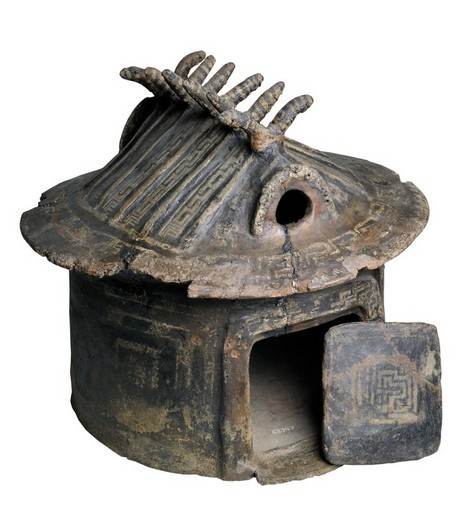
Funerary urn from the 8th C. BC 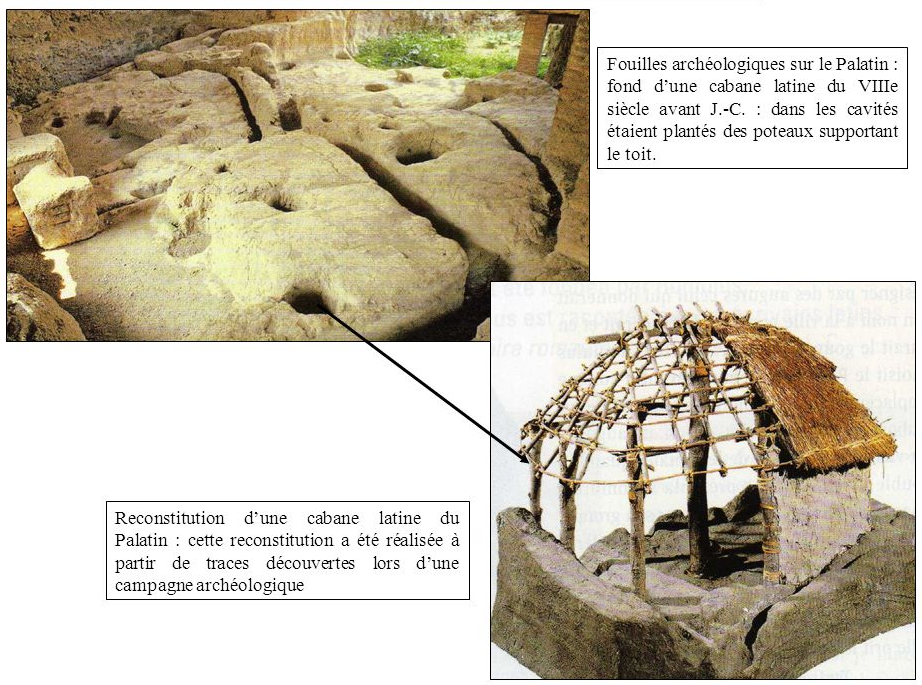
Location and reconstitutions of huts from the 8th c. BC 
Sculpture of the 3rd c. BC 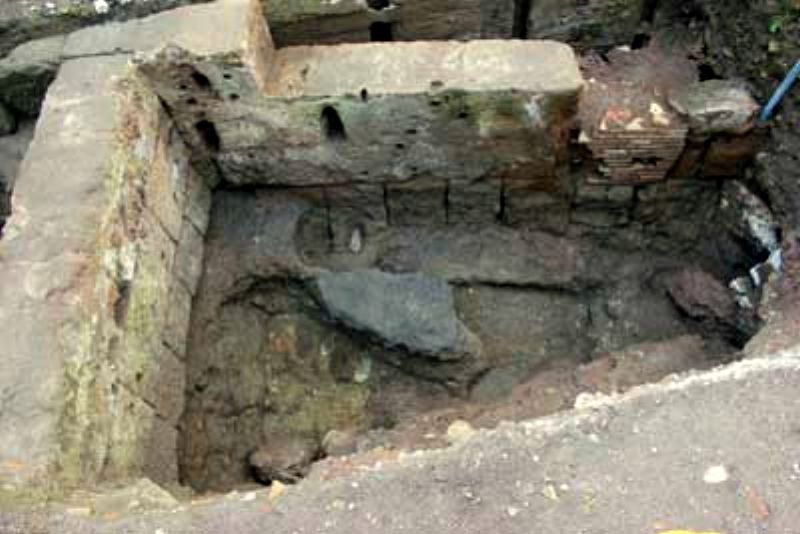
Temple of Jupiter on the Palatin Hill, around 750 BC 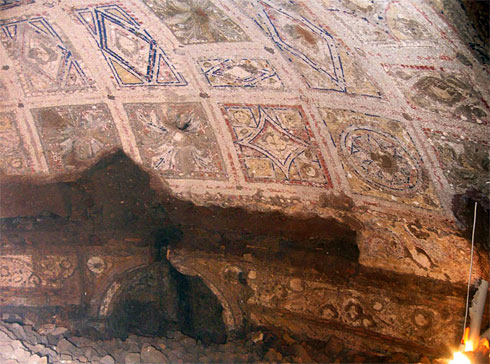
Lupercal cave (« cave of the wolf ») discovered in 2007. 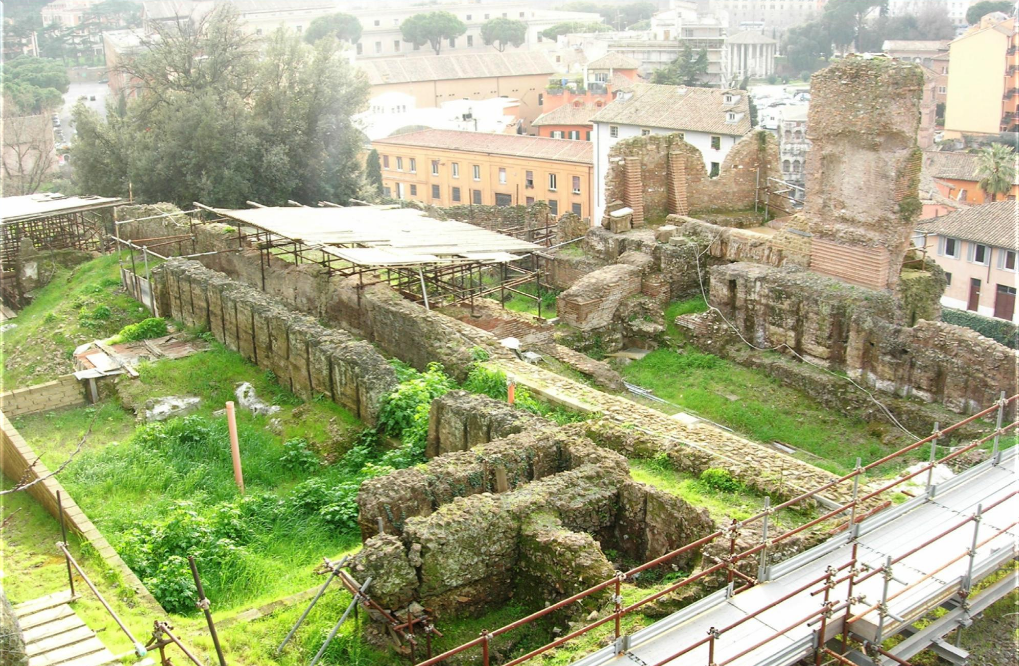
Defence wall, around 730 BC
- What are the differences between these documents and the texts of Virgil and Livy ?
- Can these archaeological scars prove what Virgil and Livy say ?
- What can’t they tell us ?
III. The glory of Rome
The genealogy of Julius Caesar
« The family of my aunt Julia is descended by her mother from the kings, and on her father’s side is akin to the immortal Gods; for the Marcii Reges (her mother’s family name) go back to Ancus Marcius, and the Julii, the family of which ours is a branch, to Venus. Our stock therefore has at once the sanctity of kings, whose power is supreme among mortal men, and the claim to reverence which attaches to the Gods, who hold sway over kings themselves. »
From Suetonius, The life of Julius Caesar



